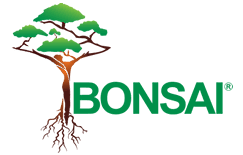One of many things clients love about using Gallup strengths is its positive focus on the value we do bring and enhancing what is good with us. We don’t ignore the weaknesses, which often are our lowest (sometimes called inferior) talent themes, but instead use our strengths to overcome them. Developing strategies for doing so is vital to a leader’s success.
In this blog, I want to share a recent example of where I helped a leader aim her strengths at a weakness. Seeing how others have navigated a situation can bring aha moments. I hope this gives you some insights as to how you might strategically overcome your constraints through your top 10 talent themes.
For Sarah, Discipline is number 31 in her list, and she wanted my advice on how to get better at this particular area. I first reminded her that investing in a lower talent theme can be a huge waste of time and energy for little return. While she might get a little better at it, it still wouldn’t be something she enjoys (and that’s putting it mildly). Rather than talk about ways to improve her Discipline specifically, it would be better to see how she can use her strengths to fix the real issue.
We first discussed some key questions. What in particular did having low Discipline lead to? Was it problems with organizing, planning, time management, etc.? What negative impact on performance was she seeing and what was her motivation to correct it? What outcome did she want to achieve?
She said her biggest issue was time management and meeting deadlines. We looked at her top strengths and this is the plan we developed to help her better manage her time and meet deadlines.
Use Sarah’s Learner and Input to research potential ideas for planning and execution to meet deadlines. She naturally likes to learn about new techniques and gather options. A challenge might be that the Learner in her will quickly get bored with one solution used over a long period because it’s no longer something new and challenging. With her high Adaptability and Learner, she may need to change her time management “system” routinely just to keep things interesting. Part of her plan included:
- Use her Intellection to mull over which options are the best fit, including taking some quiet time to contemplate herself doing them and tailoring them to meet her needs. She can actually aim Individualization at herself and customize approaches based on what makes her unique. An example I shared is that I love bright colors so if things are bright and happy, I am more engaged and willing to do them. (I also share low Discipline – routines are pure drudgery.)
- Aim Sarah’s Context to think back on what has worked in her past when she needed to manage her time or meet deadlines. When we find things that work, it helps to stick with them. Context is adept at learning from the past, so she has an advantage here that she needs to use.
- Tap into Responsibility by getting an accountability partner that she can report to weekly on her progress. The beauty of accountability is the guilt that comes with letting someone down, so you get things done even when you don’t like doing them. Personally, that works for me, and Sarah has two more strengths I don’t have to help her with an accountability partner – Intellection and Empathy. She can imagine how disappointed they will be if she doesn’t have a positive report. While I’m not an advocate of using guilt to motivate, at times it can be helpful and may be the only way to overcome an inferior talent theme.
“You be you” was my advice because that is the beauty of strengths – we work with how we are wired to get more done in a way that is natural for us. To give someone with low Discipline, Consistency, and Achiever but high Adaptability and Learner a planner and say, “You must follow this program,” isn’t going to work. It might work for a week, but it’s going to cause great suffering and likely be abandoned quickly.
A better approach is using our top 10 strengths to compensate for the lower talent theme. It may look different, but the outcomes can be the same or even better because we’re working with what comes naturally to us!
You don’t have to try and be someone else. Understand how you were designed and do what is natural for you perform at your best.





 Britta burrus design.
Britta burrus design.